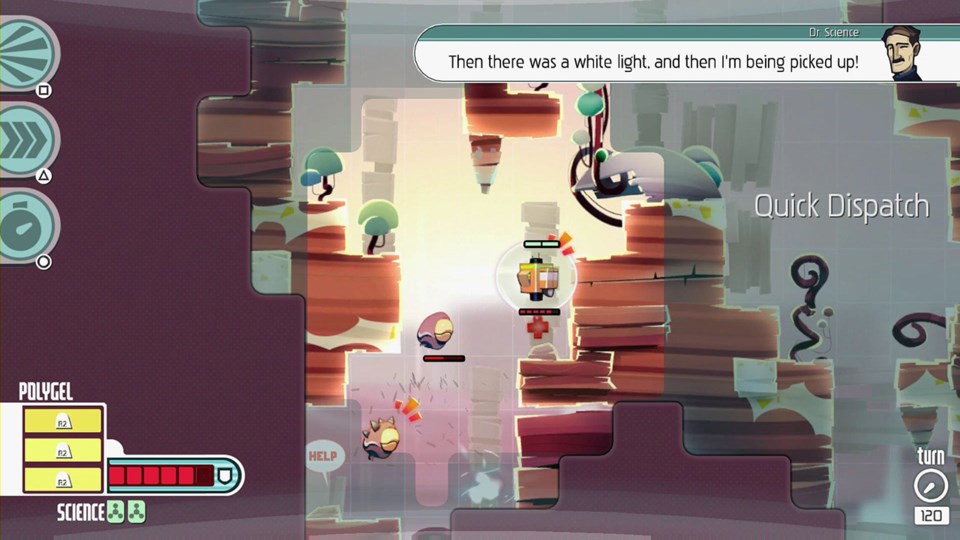In Backlog Break, Devin Wilger goes through all the games he owns and never got around to playing. This week: Nova-111, from 2015.
I can’t decide if Nova-111 is good.
A hybrid of turn-based and real-time strategy, it feels interesting. Clever, even. It feels like the developers were smart and trying new and interesting ideas. They push the game in exciting directions and keep testing out different iterations on the formula that feel creative and fresh.
And yet when I play it I keep thinking “I’m not sure if I’m actually enjoying myself.”
You are the pilot of a small space ship, charged with finding scientists and progressing towards something or other. When you move, the enemies move, so you have to move in a way that ensures they don’t get a chance to wreck your little ship. Building a game around that idea is interesting, and often the different tools you gain at your disposal provide new wrinkles to the game. After a while you encounter some things that work in real-time, adding a timing element to the previously turn-based experience. It’s all very clever.
But is it good?
I found myself appreciating it more than I did enjoying it.
Part of the problem was that checkpoints were spaced out too much, so you could find yourself killed after solving a couple puzzles. Redoing an action sequence in a game can be fun because things can change the second time around. Immediately redoing a puzzle is just tedious, because the joy of a puzzle is figuring out the solution. Once you know the solution it’s just going through the motions again.
As a result, the best part of the game wound up being the boss battles, because they typically used interesting variations on the puzzles in the game while being relatively brief.
The game is at a weird crossroads where the levels themselves are a bit too long while the game itself is surprisingly short. I found myself getting tired of it after playing a section but still feeling there was plenty of potential in the basic idea that was not quite explored. It was a good idea, but I don’t know if it was a good game.
It also seemed to be poorly optimized, chugging on a platform that should have more than enough power to render the simple graphics. While I imagine the math underneath the surface is complicated, it still feels like it should manage to handle it fine, but sometimes it would take a second before my turn was registered, and that was a bit frustrating.
More than anything, I found myself wishing for a sequel that would fix the major issues that the game has. I can see a fun game here, it just needs a bit more refinement.
Played on: PlayStation 3.



